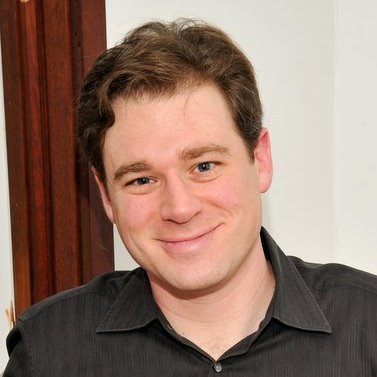Jonah Keri’s advice for writers: Read, read … READ
It’s hard to give a quick biographical sketch of Jonah Keri. The extremely short version: He’s a talented sports and financial writer and the author of the current bestseller “The Extra 2%: How Wall Street Strategies Took a Major League Baseball Team From Worst to First,” about the Tampa Bay Rays’ turnaround in 2008.
Longer: His sports writing has appeared at ESPN.com, the New York Times, the Wall Street Journal, Bloomberg Sports, FanGraphs, SI.com, Salon, Slate, Playboy, Penthouse, Baseball Prospectus, Baseball America, Street & Smith’s and Sports Business Journal, he wrote for Investors Business Daily for many years, and has edited or contributed to several books.
He also does a great weekly podcast. Recent guests include Evan Longoria, Sean McDonough, Michael Schur — creator of “Parks and Recreation” and known to sports fans as Ken Tremendous of FireJoeMorgan.com — and Death Cab for Cutie singer Ben Gibbard.
Did I mention Jonah’s something of a renaissance man? He’s also Canadian, and roots for a baseball team that no longer exists.
I asked him for his best advice for writers. Here’s his response:
Read a lot. Like, A LOT.
My high school education was weird. I went to a school that requires students to learn three hours of English, three hours of French and three hours of Hebrew every day. Not just language, either. Geography in French. History in Hebrew. We still got our full share of science. So the subject that got short shrift was literature.
I didn’t get any Hemingway in high school. No Steinbeck. Name your great American novel, and odds are we didn’t read it. Finally in Grade 11 (last year of high school in Quebec), I had my choice of physics or North American Literature. By then I knew I wanted to grow up to be a writer. But the pressure to focus on science was huge, and taking a lit class was supposedly reserved for kids who weren’t as smart. Like an idiot, I took physics instead.
I’ve spent the rest of my life trying to rectify this problem. I read books, magazines, newspapers, long-form Web articles, blog posts, Tumblrs, tweets, lists, whatever I can find. I do it because I enjoy it. But the net effect is all that reading makes me a better writer.
Sometimes the lessons you learn from reading are overt. You see a particular turn of phrase and you make it your own. Or you see a writing style for the first time, and you change the way you approach your own work. More often, it’s subtle, and cumulative. You read, and you read, and you read, and you evolve as a writer, without even realizing it.
You don’t necessarily need to read Dostoyevsky to become a better writer. I grew up reading W.P. Kinsella, not just his baseball stuff, but also his great short stories about life on a reservation in Canada.
For nonfiction, John Helyar and Jane Leavy rank among my favorites.
All of these men and women write sparingly and effectively. They don’t waste words, and they don’t try to dazzle you with flowery language. On the other hand, if you like reading flowery writing, that’s good too!
Just read what you like, as often as possible. Even if you don’t end up writing for a living, it’s a habit worth building.


